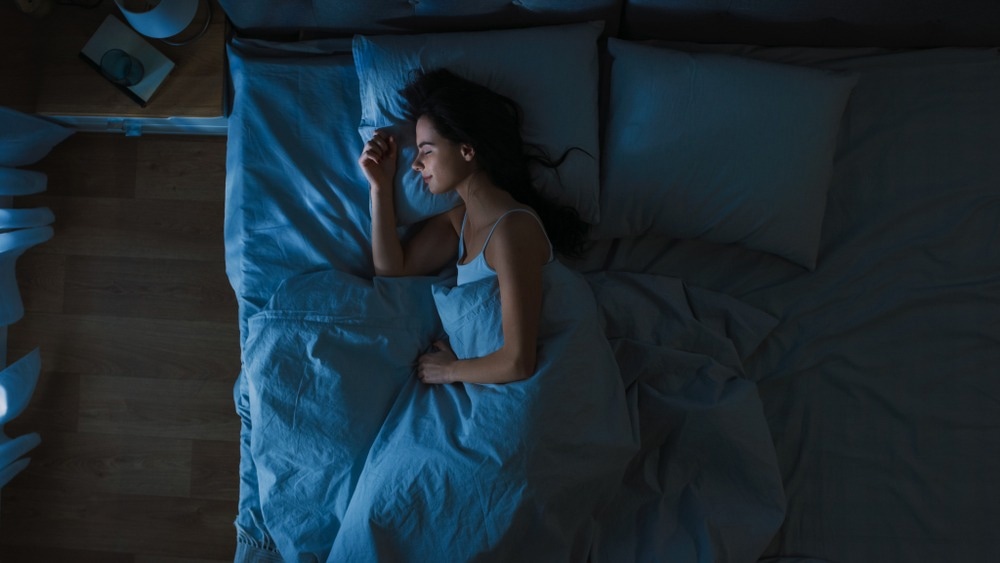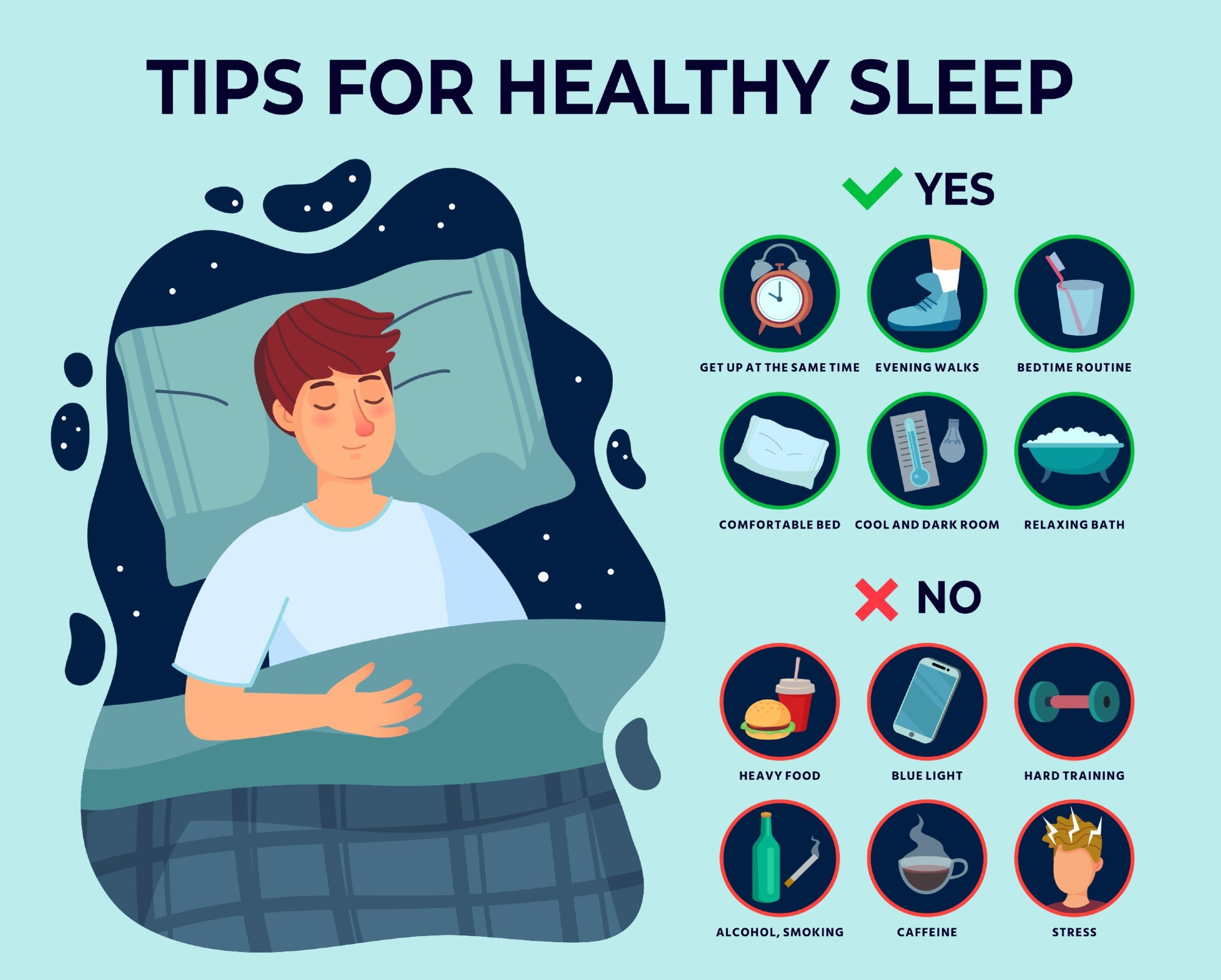Introduction
Why is Sleep Important?
How Much Sleep is Needed?
What are the Signs of Sleep Deprivation?
How to Improve Sleeping Time and Quality
References
Further Reading
Good quality sleep is essential for optimal mental and physical functioning. The amount of sleep required for a healthy life varies with age. A lack of sleep can significantly affect the health of people with chronic diseases.

Healthy sleep. Image Credit: Gorodenkoff/Shutterstock.com
Why is sleep important?
A sufficient amount of sleep is essential for the normal functioning of almost all physiological systems, including cardiovascular, pulmonary, digestive, and immune systems. Most importantly, sleep plays a vital role in maintaining a variety of brain activities, including cognition, concentration, memory and learning, and emotions.
Long-term sleep deprivation can lead to the development and mismanagement of a number of chronic diseases, including diabetes, obesity, cardiovascular disease, and depression.
Even a minimal lack of sleep can lead to low energy levels, lack of attention and concentration, low mood, and distress. All these factors collectively can affect normal daily activities. Long-term sleep deprivation can lead to severe mental and physical breakdown.
During sleep, the body undergoes a resting state. The brain works actively to maintain the homeostasis of vital physiological processes. This restorative sleep is essential to maintain optimal daytime productivity and social communication ability.
How much sleep is needed?
The amount of sleep needed per night depends on a person’s age, activity level, and overall health status.
According to the National Sleep Foundation guidelines, a healthy adult person needs 7 – 9 hours of sleep per night. Newborns, infants, and young children need approximately 9 – 14 hours of sleep, including naps. They require more sleep for growth and development.
For adolescents, young adults, and adults, about 7 – 10 hours of sleep is recommended. People aged 65 years and above are also recommended to get at least 7 – 8 hours of sleep per night.
The National Sleep Foundation guidelines describe the ideal amount of night-time sleep a person is needed for overall wellbeing. These recommendations have been made based on several validated scientific studies investigating the impact of sleep duration on major health outcomes. However, the actual amount of sleep may vary from person to person.
People with chronic health conditions, or those with a high level of daily energy expenditure, may require more than recommended hours of sleep. Similarly, people involved in high-alert services might require a greater amount of sleep than usual.
People with sleep disorders, or those addicted to caffeine or other alertness-promoting substances, may experience altered sleep patterns and poor-quality sleep. The optimal amount of sleep in these people may differ from the recommended amount.
What are the signs of sleep deprivation?
Sleep deprivation is a condition of not getting the recommended amount of sleep at night. The most common symptom of sleep deprivation is extreme sleepiness and tiredness during the daytime.
People with sleep deprivation can experience a number of symptoms during waking hours, including lack of attention and concentration, reduced thinking and reasoning power, reduced memory functions, poor decision-making ability, lack of energy, and mood changes (anxiety, irritation, and emotional distress).
The intensity and frequency of these symptoms depend primarily on the degree of sleep deprivation. Some people are more prone to develop the symptoms because of their genetic makeup. In contrast, some alertness-promoting substances, such as caffeine, can overshadow the symptoms of sleep deprivation.

Tips for healthy sleep. Image Credit: Tartila/Shutterstock.com
How to improve sleeping time and quality
For a better night-time sleep, it is important to develop and follow good sleep habits, which is commonly referred to as “sleep hygiene”.
Sleep hygiene can be improved by strictly following the same sleep schedule every day, including weekends. There should be a fixed time to go to bed and wake up. A stable sleep schedule helps avoid fluctuations in night-time sleep.
Strict implementation of the sleep schedule is possible by setting boundaries in professional and social life. Lengthy working hours or extensive socialization can negatively impact sleep hygiene.
A steady bedtime routine is important to keep the mind in the right state before going to sleep. A bedtime routine should contain a few quiet steps, such as reading a book, wearing night clothes, and brushing teeth.
The bedroom should have a quiet, comfortable, and dim-light or dark environment that is ideal for relaxation. A moderate bedroom temperature should always be maintained. The bed, mattress and pillow should be cozy and comfortable.
For an uninterrupted sleep pattern, it is important to turn off electronic devices, including TVs, laptops and mobile phones, at least 30 minutes before going to bed. Such devices stimulate the brain, and the light emitted from these devices interferes with the circadian rhythm.
Intake of high-calorie meals, coffee, and alcohol should be avoided before bedtime. A heavy meal can cause an uneasy feeling at night. Alcohol can significantly affect the sleep cycle and overall quality of sleep. Similarly, coffee acts as a stimulant that keeps the body in an alert state for a long period of time.
Long naps during the daytime may interfere with night-time sleep. Thus, nap time should be restricted to a maximum of 30 minutes. For a proper night-time sleep, it is better to avoid taking naps in the late afternoon.
Being physically active during the daytime also helps fall asleep easily and quickly at night. Similarly, frequent exposure to sunlight helps to maintain the circadian rhythm, which is vital for uninterrupted night-time sleep.
References
Further Reading
Last Updated: Jul 27, 2022